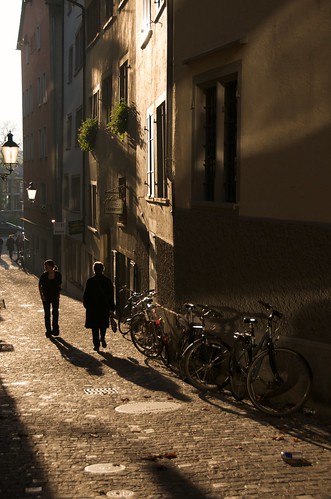A friend recently invited me to participate in
Buy Nothing Day, which this year falls on Saturday, 29 November. Normally I would be a supporter of campaigns like this, just out of sheer rock-the-boat rebelliousness. However, this time, the idea got me thinking:
How much trouble would it be for me truly to buy nothing for a day?
By the end of November, I will probably have been in my new flat in Zürich for a while. So I suppose I won’t need to buy furniture or furnishings on that particular day. I can easily forego entertainment and luxury items. It’s a Saturday, so I can prepare my own food. But that means I’ll have to buy the food and kitchen supplies ahead of time. And of course I’ll still need to use water and electricity. I can’t very well ask the utility companies to take one day’s worth off my bill. Lighting my apartment with candles and cooking over a campfire in my backyard would be worse for the environment than simply purchasing electricity from the grid.
And what about the people paid though my taxes, to send a fire truck, police car, or ambulance in the event I should need one? Can I decline their services for a day and request a refund? Clearly, the idea can be taken to ridiculous extremes.
Conspicuous consumption is obviously destructive in some ways. But I wonder to what counterproductive lengths people will go in service of the idea of buying nothing for a day. I wonder too, what the unintended consequences would be if everyone took the idea to heart? If buying is an evil to be thwarted, then the the perfect world would be a world where not much gets done.
As a symbol, Buy Nothing Day is a useful tool. It helps us realize how dependent we have become on things that we don’t really need. But interdependence between people on the goods and services offered by their neighbors is also the way the world works. It is thanks to the free flow of people, ideas, and things that so many have been able to lift themselves out of poverty.
In order to change the world for the better, we must move beyond theatrical demonstrations of our concern. We must be cognizant of our impact on our world and our neighbors, and must put this knowledge into action on a daily basis, not just once a year.
Food for thought. Speaking of which, it’s close to dinner time here. I think I’ll go buy a bite to eat.


